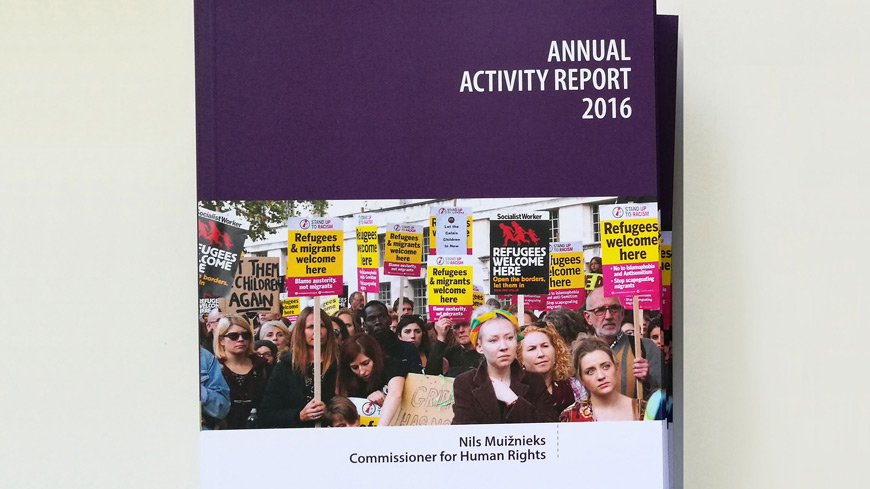“2016 will likely be remembered as a critical turning point for human rights in Europe” said the Council of Europe Commissioner for Human Rights, Nils Muižnieks today while presenting his annual activity report for 2016. “We will either see it as a low point from which European countries, individually and collectively, bounced back to reaffirm their commitment to human rights, or it will mark the beginning of the end of the European human rights system and European integration.”
The Commissioner underlined the unprecedented situation whereby three countries – Ukraine, France and now Turkey – have derogated from the European Convention on Human Rights. 2016 also stood out as a result of moves undercutting the right to asylum at national and European level, the Brexit referendum in the United Kingdom, the attempted coup in Turkey and the ensuing deterioration of the human rights situation there, policy initiatives seriously threatening the rule of law in Poland, and the election of Donald Trump as President of the United States.
For the Commissioner, “pernicious practices, such as calls for ‘modernising’ the European Convention and other international human rights treaties and refusal by a growing number of member states to co-operate with Council of Europe institutions and mechanisms, could hasten the downfall of the European human rights system, if they were to continue and spread”. “Those who want to ‘shake the system up’ should remember that the alternative to the current system may not be one more to their liking, but chaos”, he added while calling on the Committee of Ministers to “recognize that for the European human rights system it is not ‘business as usual’, treat non-co-operation with the utmost seriousness as a fundamental threat to the system, and consider far-reaching steps to bring Europe’s human rights house in order and maintain its integrity”.
As regards the migration crisis, the Commissioner called on member states to do their part to alleviate the strains on frontline countries. “Governments and parliaments must make the EU relocation scheme work, ask each other to account for inaction and identify obstacles or reasons for delays. Countries should not go unchallenged when they provide insufficient support to new arrivals and thereby encourage their non-integration and departure to another country”, he said.
Regarding counter-terrorism, the Commissioner urged governments and parliaments to challenge the quasi-automatic prolongation of states of emergency and derogations from the Convention. “The fight against terrorism is a marathon, not a sprint”, he said and insisted on the urgent need to strengthen democratic oversight of security services.
The Commissioner additionally emphasised the need for the Committee of Ministers and Parliamentary Assembly to prioritise attention to the situation of human rights defenders and the media.



